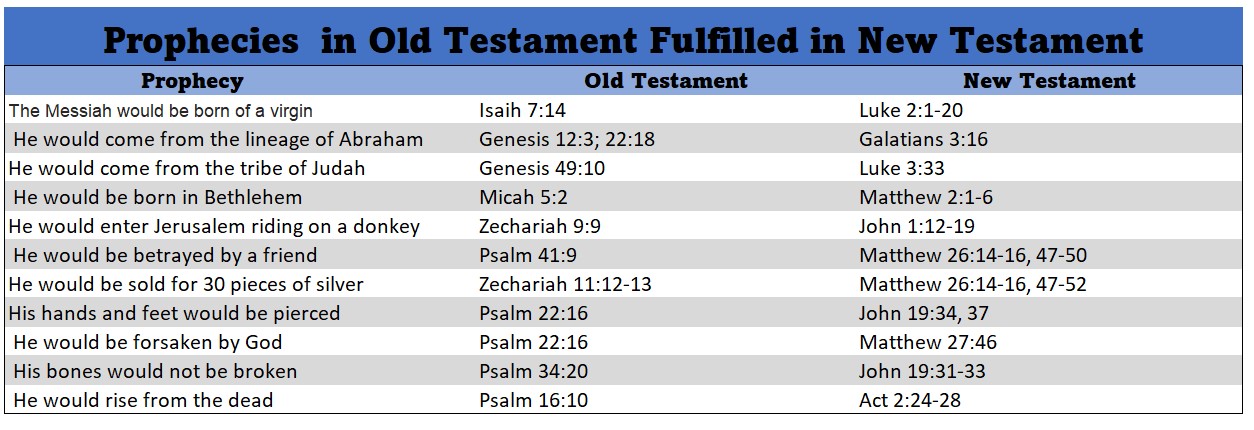Old Testament Prophecies Fulfilled by Jesus

Critics of prophecies such as Professor Bart Erdman of the University of North Carolina at Chapel Hill in the Department of Religious Studies, assert that many prophecies in the Bible are vague and open to broad interpretation. They can be molded to fit various events across history, undermining their predictive power. This makes confirmation bias a concern, where believers might see fulfillment where none was originally intended. Other prophecies have not come to pass. For example, Tyre was meant to be destroyed and never rebuilt (Ezekiel 26), yet the city recovered and persisted. Such examples challenge the idea of infallible divine prophecy in the Bible. Critics also suggest that many “fulfillments” of prophecy in the New Testament are based on flexible interpretations of Old Testament passages. They argue that the New Testament writers creatively reinterpreted existing texts to match Jesus’ life story rather than Jesus fulfilling predictions made long before his time. Finally, they claim that misunderstandings and mistranslations over centuries can further distort the original meaning of prophecies. Linguistic and cultural context surrounding these ancient utterances adds to the challenge of accurate interpretation.
For Christians, the life and ministry of Jesus Christ are understood as the fulfillment of numerous prophecies and foreshadowing found throughout the Old Testament. These prophecies, penned centuries before his birth, are viewed by Christians as a testament to the divine plan and purpose embodied in Jesus. They see “types” or foreshadowing in the Old Testament, rather than strictly literal predictions. Events or figures in the Old Testament resonate with what they see as later fulfillments in Christ, emphasizing thematic consistency rather than point-by-point accuracy. Some Christians emphasize the limits of human understanding so that not all prophecies will make perfect sense. They trust that God’s overarching purposes are at work, even if humans can’t always grasp the specifics. Finally, Christians highlight the progressive nature of Biblical revelation. Prophecies in the Old Testament offered glimpses of God’s plan, which found clearer and more complete fulfillment in Jesus Christ. Imperfect or incomplete earlier prophecies do not negate their value in this wider trajectory.
The ongoing dialogue about the interpretation of these Old Testament prophecies sparks rich theological debates and interfaith understanding. For Christians, the life, death, and resurrection of Jesus Christ stand as the ultimate fulfillment of the promises and prophecies found within the Old Testament. Analyzing these parallels provides a fascinating lens through which to explore the foundations of Christian belief and the interconnectedness of the Old and New Testaments.
